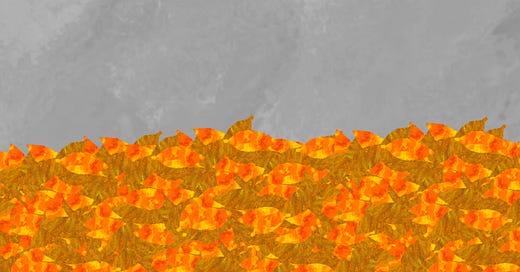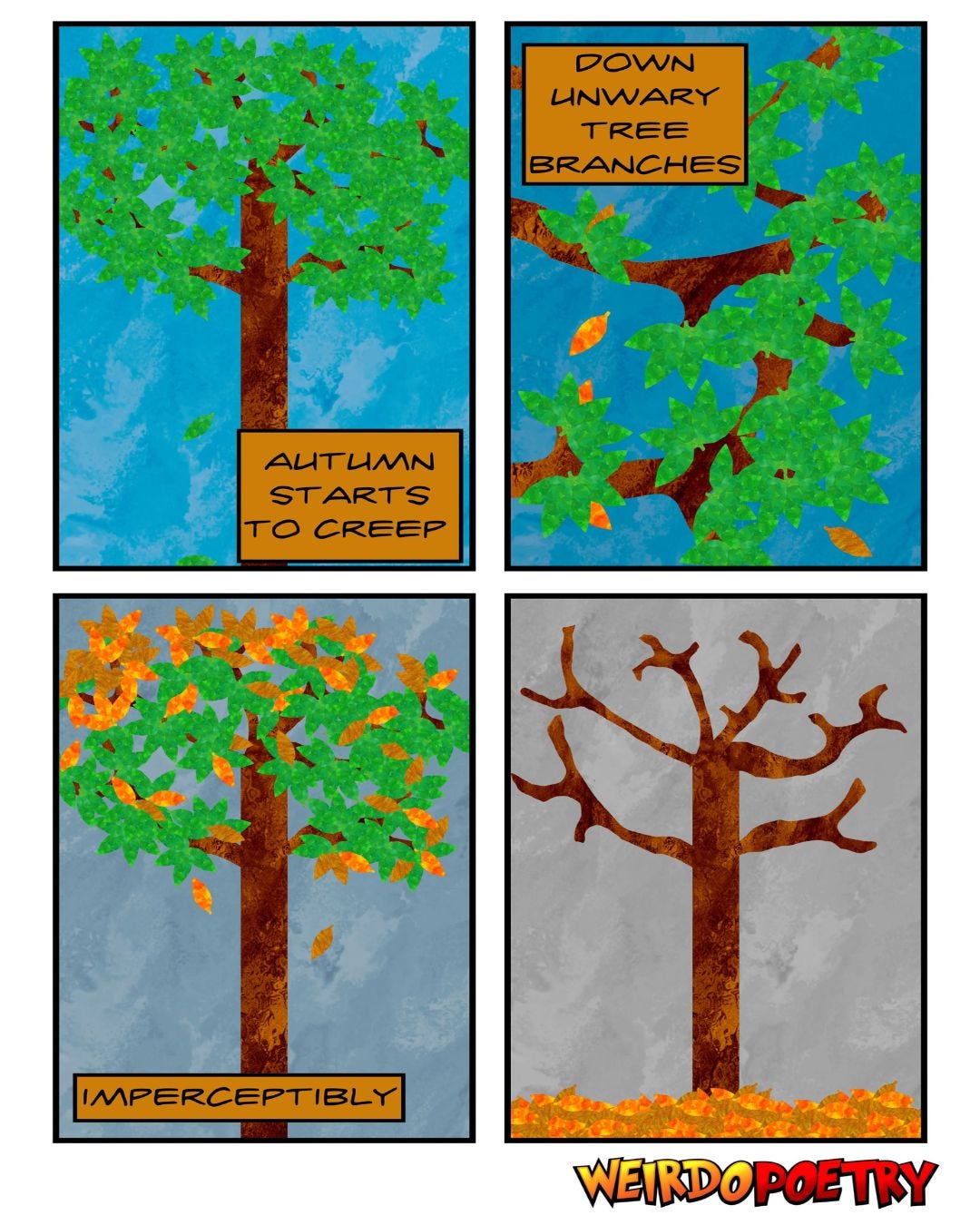Hello, Summer Survivors!
We are approaching fall, but we’re not quite there yet. The interstitial places between seasons are fertile ground for poetry.
autumn starts to creep
down unwary tree branches
imperceptibly
Writing about the Interstitial
It’s easy to get so wrapped in our lives that we fail to observe the slow changes in nature. If we’re not careful, we wake up one day and the leaves have all changed—or even fallen—and we missed the change.
Writing poetry gives us an excuse to sit outside and stare at the trees. The change from summer to fall is one of the most glorious times in the Pacific Northwest. Chances are, there are marvelous things happening outside where you live too.
In traditional Chinese medicine, the year is split up into five seasons. The time from mid-August to the fall equinox is called late summer or second summer. In most places on the globe near the 45th parallel, including the Willamette Valley, there is a distinctive late summer season.
I grew up learning a term for this season that feels racist, so I call this season interstitial summer. After all, what’s the point of being a poet if you can’t make up a few seasons here and there?
When writing about interstitial season, or any period of transition, I like to focus on duality. Fall is both here and not here. Summer is gone, but still hanging on.
Another way I like to think about the changeover between seasons is the tuning of an old TV. I’m of an age where a big part of my job as a kid was to adjust the rabbit ear antennas of our small TV in the kitchen to get the channels to come in clear for my mom while she cooked. When the antennas are in the wrong position you only get static. The closer you get to the proper alignment, the clearer the picture is on the screen. Occasionally, you would get ghost images of two different channels competing for the screen. This is also similar to how radios used to work.
Often haiku about interstitial season will have that same fuzziness of the not-quite-tuned-in TV. You can see elements of multiple seasons.
The most interesting poetry to read and write is the kind that embraces the difficult and uncertain parts of living in a world where we cannot see what’s going to happen next.
Haiku Writing Prompt
Write a haiku, or series of haiku, about an interstitial time or place. It could be about interstitial summer or some other moment of transition. Feel free to use either the traditional 5-7-5 syllable pattern of a three-line poem or any other format that you feel comfortable with.
Please share your poems in the comments!
Be the poetry you want to see in the world!
Cheers,
Jason







Twenty-seven years
Ruler with an iron fist
Ruled as he saw fit
Sixty-five degrees
Cold for the Philippines
Under nose, a fire
Day of reckoning
February revolution
1986
1986
EDSA Revolution
Victory for truth
1986
Glory on a month of rain
Freedom in the air
Long-time rain-shackles
Democracy thereafter
Two scores hence, a backsliding
2022
The Philippines ran backwards
1986
It’s “winter” again
Dictator’s son as ruler
Amnesia, his goal
Smell the petrichor
A rainy September day
History books changed
Slogans to unfreeze
Our petrified history
Back in streets, we rage
(Inspired by recent and historical political events in the Philippines. It does rain in February. Usually colder as well for the tropical standard. My best jab at the prompt, hope it isn’t cringeworthy, lol.)
A few years ago I also added attention to the cycles of the moon more deeply
Today we have a new moon in the sky
The moon is a good phase for planting seeds with your hands steady, your feet calm on the ground, and as my sweet grandmother used to say, "put a little piece of the meat from your heart in there."
We are never alone
Sometimes we need many moon cycles for the seeds to germinate abundantly.
With each new moon reaffirming the desires, the seeds, planting what will be good food for us
When we pay attention to the cycles, they start to make more sense
It's good that at this point in life we can look at them